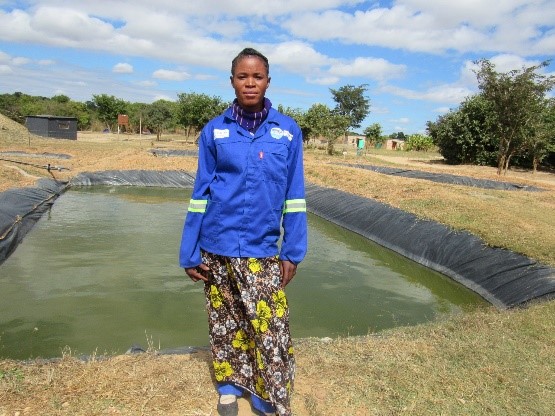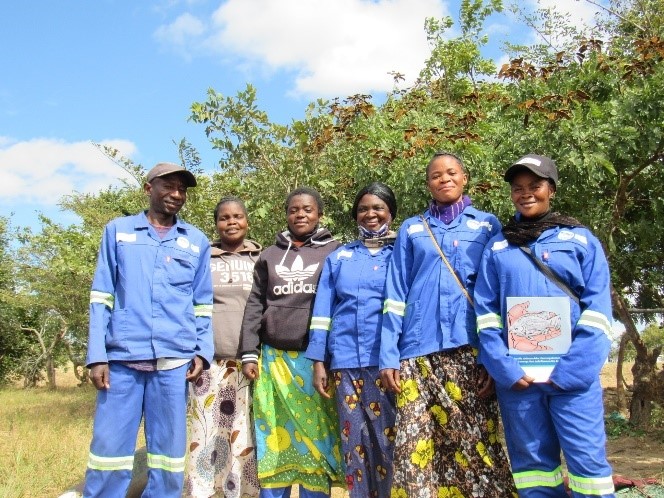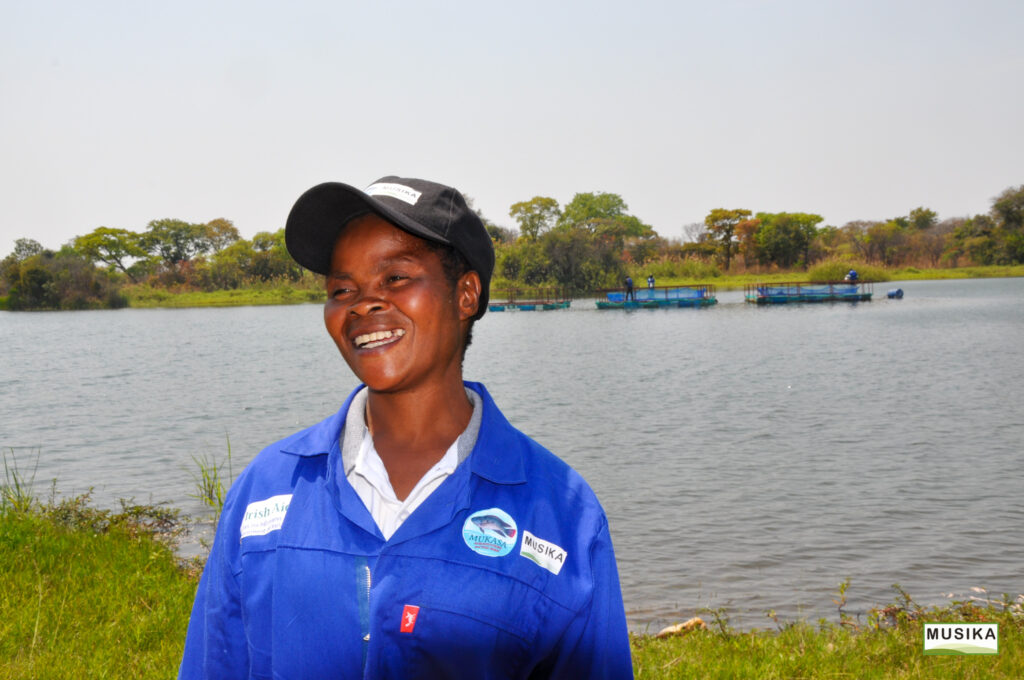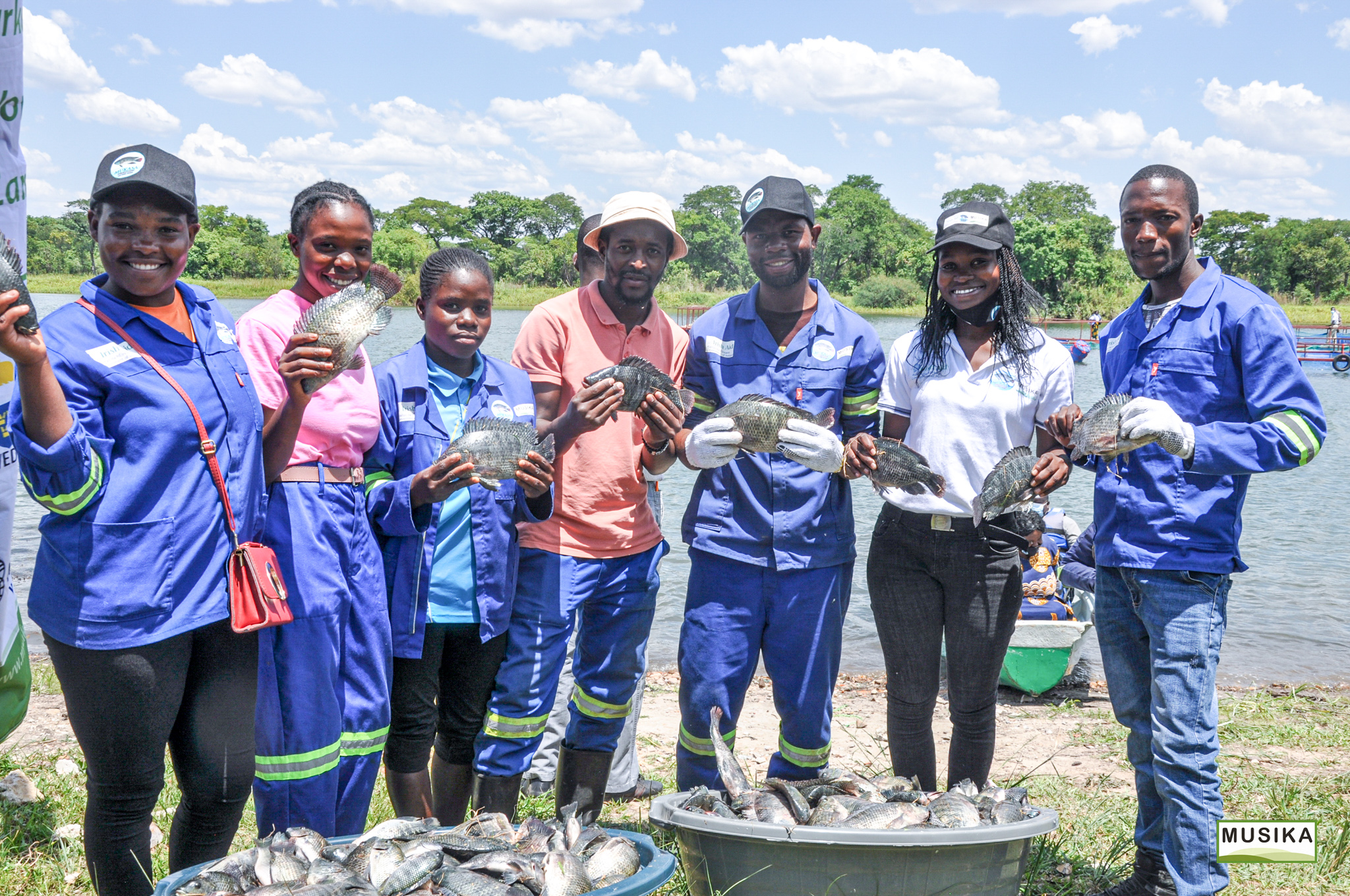Meet Saliyah Muhonda who has defied gender norms in Zambia to venture into what many people in the country believe to be a “male career “.
The 32-year-old is a cage fish farmer who alongside nine other women in Mboboka village in Zambia’s Central Province own a floating cage on the Mulungushi River.
Saliyah first heard of cage fish farming in 2020 when she enrolled for training under a fish outgrower scheme run by Mukasa Agro Fish Farm in Kapiri Mposhi district. Since then, she has come to learn how to farm fish in cages. She is part of a fish outgrower scheme implemented by Mukasa Agro Solutions with support from Musika.

Before venturing into fish farming, she used to work odd jobs in neighboring fields and sold tomatoes to fend for her four children and other dependents.
Under the scheme, Saliyah’s group has been supported through Mukasa Agro with technical training, mentorship programmes, access to inputs including feed, fingerlings and a cage.
This support is helping transform her life.
“We have benefited from the scheme in many ways. It gave us an opportunity to learn a lot on fish farming and be able to prove that it is a good business and very profitable if done correctly,” Saliyah said.
The group made slightly over K20, 000 from the sale of the fish from the first circle and decided to reinvest part of the money by procuring over 30,000 fingerlings and fish feed for the second circle. Part of the harvested fish was retained for home consumption, a move that helped cut their protein food budgets as they now had readily available protein source.
“Our vision is to ensure that each member of the scheme owns their own cage because there is a big opportunity here. We have no real source of fresh fish here so we have to travel all the way to Kabwe town to buy fish which is too costly. So, our aim is to bridge this gap and we are headed in that direction,” she said.

Royce Musonda, a member of the outgrower scheme, added that cage fish farming could act as a buffer against both low fish stock and nutritional levels endured by households in the area.
“We don’t want to be left behind as women because this fish will help us support our children in school at the same time keep them healthy,” said Royce who previously never thought of herself as a fish farmer but now takes a boat ride at least once every week to examine and feed her fish in a floating cage on the Mulungushi River..

“My dream is to become a big a successful fish farmer who will empower other young women on skills in cage farming,” she added.
Thanks to Mukasa, Royce is on her way to realizing her potential.
Musika with funding from Irish Aid supported Mukasa Agro to increase fish production and establish in-community sales points to improve access to fish proteins in rural communities of Kabwe and Kapiri Mposhi districts and surrounding communities. The support included the procurement of three (3) fish cages of which one was assigned to be managed by Saliyah and Royce’s group. Musika also procured a boat, solar deep chest freezers, a motorbike, containerized cold rooms and hand wash station. Further support was channeled towards training as well as promotion and awareness activities to increase consumption of fish protein in rural households.
Musika believes that aquaculture in Zambia could gradually transform the economic livelihoods of rural communities and improve the nutritional status especially among women and children. Hence taking on a gender transformative approach in its interventions in order to contribute toward changing social norms that limit women’s abilities.
Story by Yande Chichoni and Gift Chanda

